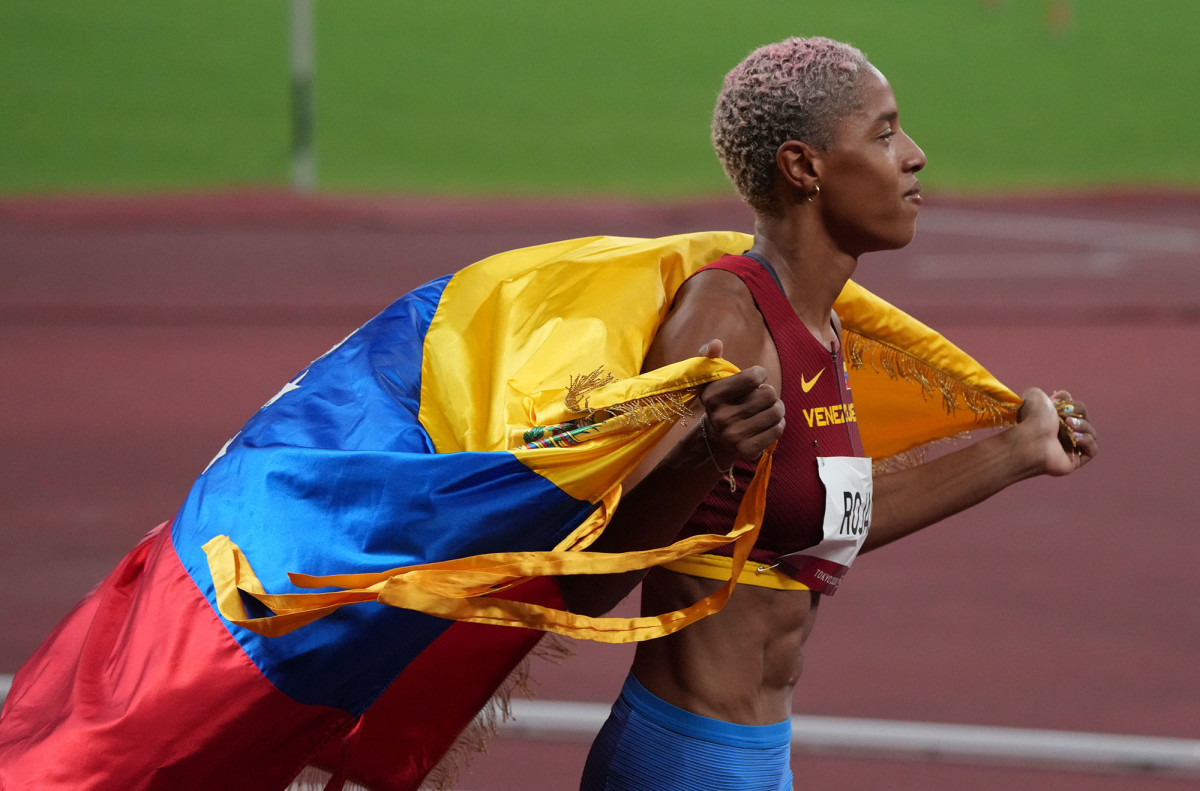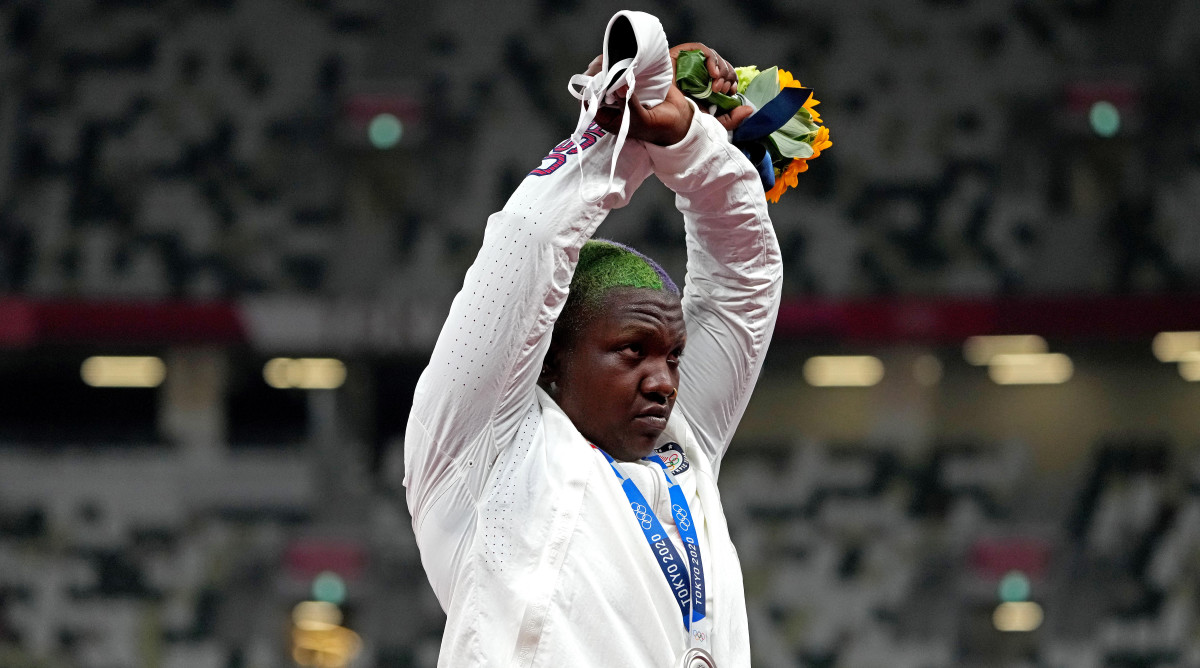When Will the IOC Finally Take a Stand and Protect Its Athletes?

Sign up for our free daily Olympics newsletter: Very Olympic Today. You'll catch up on the top stories, smaller events, things you may have missed while you were sleeping and links to the best writing from SI’s reporters on the ground in Tokyo.
TOKYO — The Olympics are one of the world’s great sporting events. The Olympic Movement is a marketing scheme. You must understand both to understand either. If you view the International Olympic Committee as a business, you see that competing countries are not participants in a vehicle that promotes world peace. They are corporate partners.
This weekend, one of those corporate partners kidnapped an employee. According to Reuters, sprinter Krystsina Tsimanouskaya says Belarus authorities took her to Haneda airport against her will rather than let her compete. Tsimanouskaya’s sin was speaking out against her coaches for forcing her to compete in an event on short notice. Questioning authority is risky for any citizen under the regime of autocratic Belarussian President Alexander Lukashenko.
The IOC, of course, claims the Olympics are not political. But Tsimanouskaya did not make the games political; Belarus did. So now what does the IOC do? If you guessed “express outrage at Belarus and demand justice,” I have a bridge I’d like to sell you. It will cost $50 billion, but then you get to host an Olympics for two weeks.
What the IOC means is that its product is not political. Being political means upsetting Lukashenko, who said this week that he might be willing to invite Russian troops to his country, or Vladimir Putin, who would be the one sending those troops. Being political could shrink the whole enterprise. Being political is bad for business.
The Olympics are not designed to bring the world together for any purpose except bringing the world together. That’s how the IOC maximizes revenue. When it is searingly obvious that the IOC needs to take a stand, it prefers to lean forward in its chair and ask everybody else to sit. That is what it did with Russia’s doping scandal, and it is how it has handled Belarus for mistreating its athletes.
In December of last year, the IOC announced “provisional measures against” the Belarus National Organizing Committee. The first measure: “ensure better protection of the athletes’ rights and preserve the athletes from any discrimination or undue pressure.” If you think “better protection” of athletes means not kidnapping them, you apparently didn’t read the fine print.
Tsimanouskaya lost her chance to compete here, and she told Reuters, “I will not return to Belarus." Yet IOC spokesman Mark Adams kept saying Monday that the organization was still trying to figure out what exactly happened, and that its priority was keeping Tsimanouskaya safe. On the surface, that all sounds reasonable. It is not. Tsimanouskaya said she wants to run in the Olympics and her country took her to the airport against her will. What other facts do we need?
The IOC obviously cannot oust Lukashenko itself. But it can enforce basic standards for anybody participating in the Olympics, and it rarely does. When Iran instructed its athletes to forfeit rather than compete against Israel, the IOC shrugged. When Iran’s Javad Foroughi, a member of that country’s Revolutionary Guard, won gold in shooting last week, the IOC hoped nobody noticed.
Sunday evening, while Tsimanouskaya was trying to escape her own country’s leaders, Abdessalem Ayouni and Yulimar Rojas were competing simultaneously in the same Olympic Stadium where the Opening Ceremony was held nine days earlier. They are proof that as long as athletes represent countries, they are, by definition, part of a political system.

Ayouni runs for Tunisia, a country whose president, Kais Saied, fired the prime minister and suspended parliament during these Olympics. Rojas, a Venezuelan, is one of the most charismatic and talented athletes here. She basically clinched gold in the triple jump on her first attempt, then set the world record. She mesmerized the crowd, such as it was, with her style—rocking back and forth, celebrating like she was born to do it. She makes Usain Bolt seem shy.
Venezuela should embrace Rojas for who she is. But she is a lesbian from a country that is institutionally hostile to her community, and whose Armed Forces still criminalize same-sex relationships.
“The attitude towards Yulimar has been of total denial,” Quiteria Franco, general coordinator of the Venezuelan LGBTQ advocacy group Union Afirmativa, wrote in an email to SI. “People in Venezuela feel happy about her achievements while saying it is not necessary to mention her skin color or her sexual orientation or even the fact that she is a woman …
“Back in 2016 when she won [a silver] medal in Rio de Janeiro, she shared her happiness by mentioning her girlfriend. Afterwards she received tons of criticism due to her sexual orientation. The Venezuelan Olympic Committee was not happy about it and at the end she was forced to eliminate the photo [from] her Instagram feed.”
After her epic performance here, Rojas said, “I have always said that I wanted to be the first woman to get an Olympic gold medal in Venezuela,” but that was as far as she delved into its meaning. Ayouni said Tunisia’s Olympic effort “has nothing to do with the political situation.” They had every right to avoid hard discussions on one of the biggest nights of their lives. But some athletes want to take a different approach, and the IOC wants to stifle them.

American silver medalist Raven Saunders, a shot-putter, held her arms up in an “X” formation on the podium, to show “the intersection of where all people who are oppressed meet.” Philosophically, that is inches away from what the IOC calls the “goal” of the Olympic Movement: “to contribute to building a peaceful and better world.” But because the IOC has banned protests during medal ceremonies, Saunders is in apparent violation of the rules. (The IOC declined to punish Saunders, saying it's the U.S.'s responsibility.)
The IOC’s Adams said his organization has not tried to keep athletes from expressing their views in media interviews, as though it has any other choice. The IOC is just another huge organization selling a product on TV. Saunders and Rojas and Ayouni can participate as long as they stick to selling the product. If athletes want to promote a peaceful and better world, they had better be careful. The last woman to try that ended up at the airport instead of the track.
More Olympics Coverage:
• Katie Ledecky Isn't Done Yet
• Mykayla Skinner Wins Unexpected Silver on Vault
• U.S. Swimming Dominates at Olympics
• Mixed Events Are Perfect for the Olympics. More Sports Need to Get in on It
